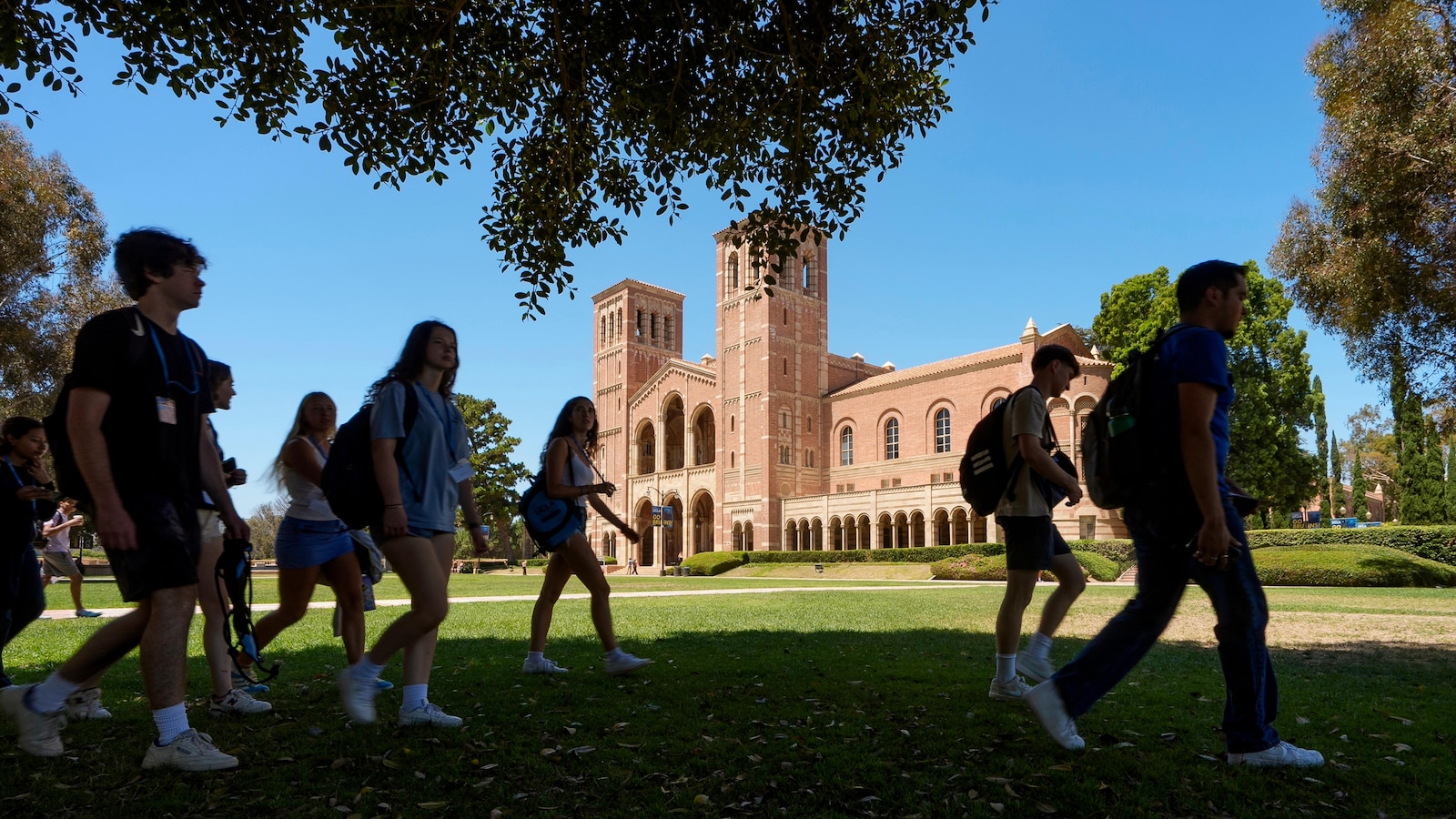A White House official says the Trump administration is seeking a $1 billion settlement from the University of California, Los Angeles
Why it matters
- The Trump administration is holding UCLA accountable for actions taken during its tenure, potentially setting a precedent for federal involvement in university governance.
- A resolution of this settlement could influence funding and operational policies across numerous higher education institutions nationwide.
- This case may ignite discussions about accountability and transparency in public universities, particularly regarding federal funding.
In a surprising move, a White House official has confirmed that the Trump administration is actively seeking a staggering $1 billion settlement from the University of California, Los Angeles (UCLA). This development marks a significant moment in the ongoing dialogue surrounding federal oversight of educational institutions and the implications of such actions.
The administration's pursuit of this settlement stems from allegations tied to the university's management and conduct in various facets of its operation. While specific details regarding these allegations remain somewhat vague, they reportedly involve issues related to compliance with federal regulations, particularly regarding funding and administrative practices. The gravity of the situation has led the administration to believe that a financial settlement is warranted, reflecting a broader concern about accountability in public institutions.
The implications of this case extend beyond UCLA itself. If the Trump administration is successful in securing the settlement, it could set a significant precedent for how federal authorities interact with public universities across the country. Universities often rely on federal funding for various programs and initiatives, and the threat of such settlements could compel institutions to alter their operational procedures and governance structures significantly.
In recent years, the federal government has increasingly scrutinized universities, particularly regarding their handling of sexual assault allegations and other forms of misconduct. The Trump administration’s move against UCLA may signal a new era of heightened scrutiny, where universities could be held more accountable for their actions and decisions. Critics of the administration argue that this approach could undermine the autonomy of educational institutions, leading to a chilling effect on academic freedom and governance.
Furthermore, this situation raises questions about the role of federal oversight in higher education. Supporters of the administration's actions believe that imposing strict accountability measures is necessary to ensure that universities operate within the law and uphold the standards expected by taxpayers. Conversely, opponents contend that such federal intervention could lead to an erosion of institutional independence, as universities may become overly cautious in their decision-making processes to avoid potential repercussions.
As the situation unfolds, UCLA officials have expressed their commitment to addressing the concerns raised by the administration. They have indicated a willingness to engage in discussions aimed at resolving the matter amicably. However, the scale of the requested settlement suggests that the administration is not merely seeking a minor adjustment but rather a substantial shift in how the university operates.
The case also highlights the intricate relationship between federal funding and university governance. Many public universities rely heavily on federal grants and funding to support their programs, research, and student services. As such, the impact of this settlement could reverberate throughout the higher education landscape, prompting other institutions to reassess their compliance with federal regulations and the potential risks associated with federal funding.
In light of these developments, stakeholders within the higher education sector are closely monitoring the situation. University administrators, faculty members, and students alike are keenly aware that the outcome of this case could have lasting ramifications on their institutions. As discussions continue, the focus will be on how both parties navigate this complex legal landscape and what it ultimately means for the future of public universities in America.
As this case progresses, it will be essential to observe the broader implications for university policy, federal funding, and the ongoing debates surrounding accountability and governance in higher education. The outcome may very well redefine the dynamics of federal engagement in the university sector, shaping the future of higher education for years to come.











